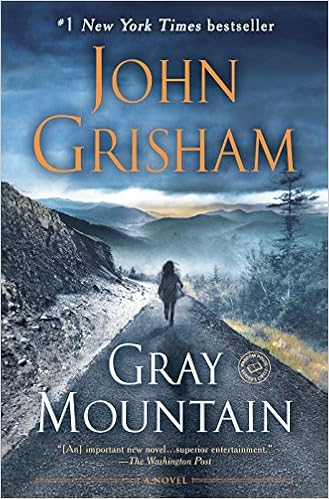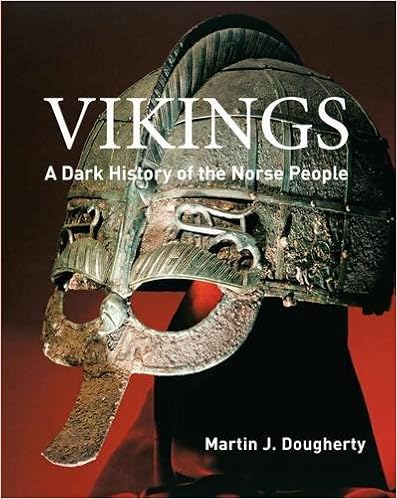 Readers who look for a novel well steeped in philosophy which takes the classic love scenario and turns it upside down will find much to relish in this evocative story of adventurers who seek to reinvent not just themselves and each other, but their worlds.
Readers who look for a novel well steeped in philosophy which takes the classic love scenario and turns it upside down will find much to relish in this evocative story of adventurers who seek to reinvent not just themselves and each other, but their worlds.
Category: Book Reviews
Book Reviews
A review of The Monstrous Memoirs of a Mighty McFearless by Ahmet Zappa
 Ahmet Zappa has created a refreshingly child friendly story certain to tempt the middle grade target audience. Characters and situations including Guide Mr. Devilstone, the egomaniac one-eyed coyote who wears a monster alarm, the Enotslived Diamond, around his neck, Ms. Monstranomicon a live monster manual who is more kindhearted than horrific, and the McFearless clan itself are appealing, engaging and likeable.
Ahmet Zappa has created a refreshingly child friendly story certain to tempt the middle grade target audience. Characters and situations including Guide Mr. Devilstone, the egomaniac one-eyed coyote who wears a monster alarm, the Enotslived Diamond, around his neck, Ms. Monstranomicon a live monster manual who is more kindhearted than horrific, and the McFearless clan itself are appealing, engaging and likeable.
A review of Tesserae by Mathias B Freese
 Freese weaves a narrative rich in human frailty and humanity. His reflections regarding life, affection and the way we all change and become who we are now, may serve to motivate the reader toward exploring and perhaps setting down memories for themselves. Freese’s writing is distinctive and well-written with universal appeal. Tesserae is a work to be read and perhaps re-read, for the perceptions it offers into memory and the nature of the self.
Freese weaves a narrative rich in human frailty and humanity. His reflections regarding life, affection and the way we all change and become who we are now, may serve to motivate the reader toward exploring and perhaps setting down memories for themselves. Freese’s writing is distinctive and well-written with universal appeal. Tesserae is a work to be read and perhaps re-read, for the perceptions it offers into memory and the nature of the self.
A review of Diaboliad & Notes on a Cuff by Mikhail Bulgakov
 These two handsome and distinctive paperbacks form part of a series showcasing the work of Russian Master Mikhail Bulgakov. Some of the stories in Notes on a Cuff appear in English for the first time, so this is a real treat for Bulgakovians. In addition, both books include valuable textual apparatus: photographs (Mikhail was quite the dandy), notes and a concluding section on the life and work of Bulgakov.
These two handsome and distinctive paperbacks form part of a series showcasing the work of Russian Master Mikhail Bulgakov. Some of the stories in Notes on a Cuff appear in English for the first time, so this is a real treat for Bulgakovians. In addition, both books include valuable textual apparatus: photographs (Mikhail was quite the dandy), notes and a concluding section on the life and work of Bulgakov.
A review of Hitler: Volume I: Ascent 1889-1939 by Volker Ullrich
 This nuanced, well researched and often reflective biography follows closely upon the heels of Peter Longerich’s books about Himmler and Goebbels and a new scholarly edition of Mein Kampf. Apparently, there is renewed interest in what the Nazis did and thought, and this is perhaps because our world, as Timothy Snyder notes in Black Earth, is becoming more like theirs.
This nuanced, well researched and often reflective biography follows closely upon the heels of Peter Longerich’s books about Himmler and Goebbels and a new scholarly edition of Mein Kampf. Apparently, there is renewed interest in what the Nazis did and thought, and this is perhaps because our world, as Timothy Snyder notes in Black Earth, is becoming more like theirs.
A review of The Argonauts by Maggie Nelson
 Though there’s much about the book that could be (and has been) called radical, in terms of the way the book resists any kind of classification and subverts definitions that have long had specific meanings associated with them, and in terms of the dramatic physical transformations that are undergone by the characters through the book. Yet what comes through for me is how tender and universal a love story The Argonauts is.
Though there’s much about the book that could be (and has been) called radical, in terms of the way the book resists any kind of classification and subverts definitions that have long had specific meanings associated with them, and in terms of the dramatic physical transformations that are undergone by the characters through the book. Yet what comes through for me is how tender and universal a love story The Argonauts is.
A review of Gray Mountain by John Grisham
 Grisham employs several new strategies that constitute his most meaningful strides towards lessening prejudice against women and giving them a strong status in the legal field as is true nowadays in attempting to create a strong novel with a strong heroine: nearly no objectification towards women, objectification of men, and verbalized desire to change their status quo and lessen objectification.
Grisham employs several new strategies that constitute his most meaningful strides towards lessening prejudice against women and giving them a strong status in the legal field as is true nowadays in attempting to create a strong novel with a strong heroine: nearly no objectification towards women, objectification of men, and verbalized desire to change their status quo and lessen objectification.
A review of Vikings by Martin J Dougherty
 That Dougherty is a historian is evident in this work. Filled with maps, photographs and graphics; Dougherty treats the reader to an eye-appealing, gratifying volume regarding the fundamentals of Viking life, history and a broad spectrum of activities carried out for the duration of the period. Vikings provides a robust overview of a fascinating people whose life, culture, accomplishments and behaviors have colored much of the world and have left an indelible mark on those of us who descend from the settlement areas colonized by them.
That Dougherty is a historian is evident in this work. Filled with maps, photographs and graphics; Dougherty treats the reader to an eye-appealing, gratifying volume regarding the fundamentals of Viking life, history and a broad spectrum of activities carried out for the duration of the period. Vikings provides a robust overview of a fascinating people whose life, culture, accomplishments and behaviors have colored much of the world and have left an indelible mark on those of us who descend from the settlement areas colonized by them.
A review of Quick & Easy Dump Cakes and More by Cathy Mitchell
 Cathy Mitchell’s Quick & Easy Dump Cakes has a handy variety of desserts, breads and the like all in one place, many of the recipes can be fairly interchangeable with white cake substituted for yellow or chocolate depending upon what you want the dessert to be.
Cathy Mitchell’s Quick & Easy Dump Cakes has a handy variety of desserts, breads and the like all in one place, many of the recipes can be fairly interchangeable with white cake substituted for yellow or chocolate depending upon what you want the dessert to be.
A review of In Praise of Stay-At-Home Moms by Dr. Laura Schlessinger
 Dr. Laura shows the many great rewards of motherhood through her own personal experiences as well as may other stay-at-home mothers. She and countless other women lovingly remember the smiles their children gave them, the silly behaviors of their children, and regular mother-child moments. Although Dr. Laura admits that there are some moments she wishes have never occurred, she is proud to say that being a mother is her greatest achievement.
Dr. Laura shows the many great rewards of motherhood through her own personal experiences as well as may other stay-at-home mothers. She and countless other women lovingly remember the smiles their children gave them, the silly behaviors of their children, and regular mother-child moments. Although Dr. Laura admits that there are some moments she wishes have never occurred, she is proud to say that being a mother is her greatest achievement.